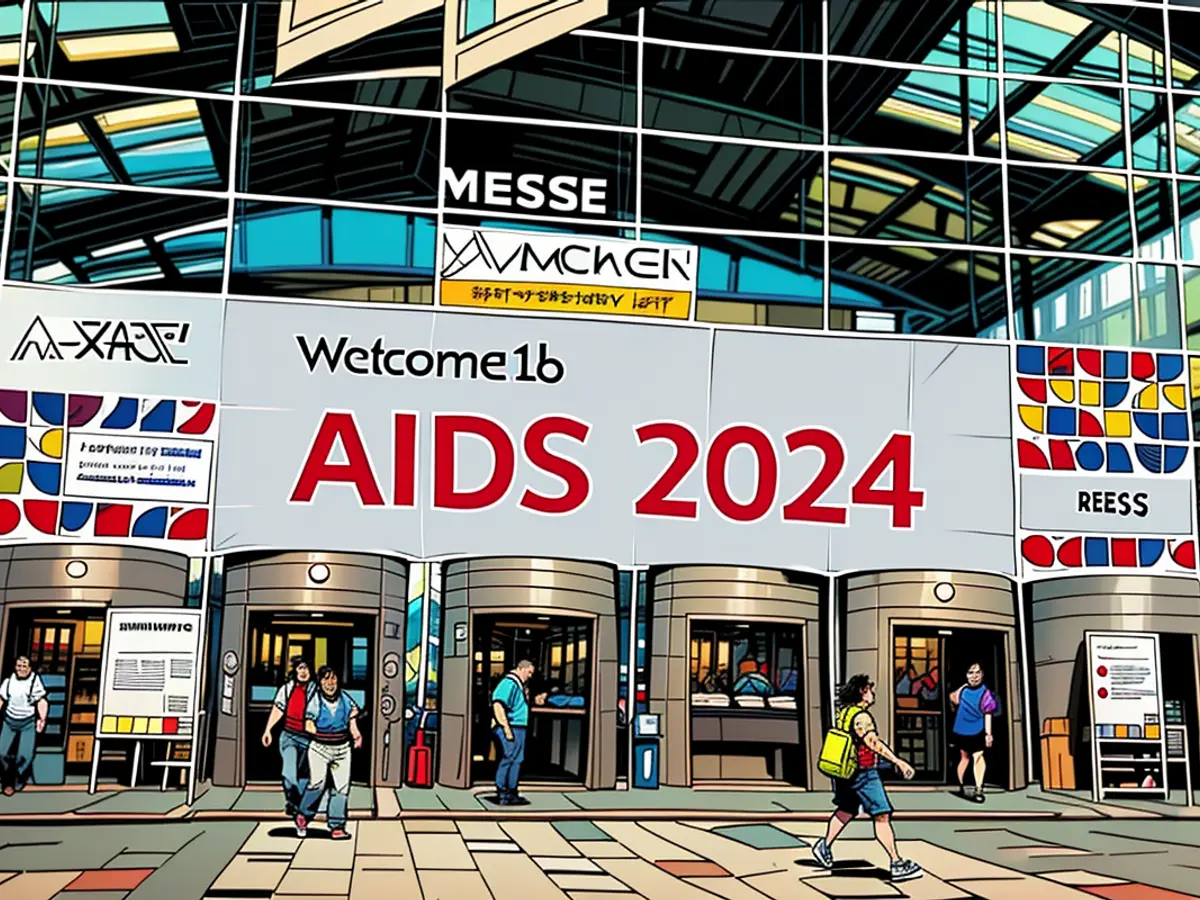HIV - Aids-Conference in Munich - Opening with Scholz
The Bavarian state capital Munich will serve as the venue for the world's largest scientific gathering to combat the HIV virus AIDS this week. Over 10,000 attendees are expected for the 25th World AIDS Conference. Federal Chancellor Olaf Scholz will speak at the opening on Monday afternoon.
From Monday to Friday, doctors, health experts, and activists from over 175 countries, invited by the International AIDS Society, will discuss how to further contain the HIV virus and AIDS. The event is taking place in Germany for the first time since 1993, when experts met in Berlin.
New scientific insights
A topic of the conference is Pre-Exposure Prophylaxis (PrEP). When taken correctly, these medications can prevent infection. However, they are not accessible in many parts of the world and are still largely unknown in Europe outside of homosexual and bisexual men. In some African countries, a vaginal ring is in use. Made of silicone, it is inserted into the vagina and releases an antiretroviral active ingredient.
African hopes lie in injectable medications for protection against infection, which only need to be administered every two to six months. Many other topics will also be discussed at the conference, with new studies to be presented.
A place for exchange
Numerous organizations and representatives of various communities present themselves as part of the World AIDS Congress in the Global Village. This part of the congress is open to the public and aims to bring together people dealing with HIV and AIDS beyond scientific debates. It unites the fight against the spread of the Virus, but also against stigmatization and discrimination.
"It's about creating a lively place for exchange and making the issue tangible," says Tobias Weismantel, managing director of the Munich AIDS Help and co-chairman of the Global Village. "HIV is a global problem." It can only be solved by working together worldwide.
One person dies every minute from AIDS
The number of deaths has been reduced since 2004, when around two million people died worldwide from AIDS, to less than a third. However, according to UNAIDS, the UN Programme on HIV and AIDS, one person still dies every minute from AIDS. The number of infections is increasing again in Eastern Europe; in Africa, they remain high despite progress in the fight against HIV.
Approximately 40 million people live with HIV worldwide
According to UNAIDS, around 40 million people lived with HIV in 2022, about a quarter - 9.2 million - had no or insufficient access to treatments.
UNAIDS will publish the numbers of new infections and deaths for 2023 before the official conference opening on Monday morning, with a focus - like at the conference - on Eastern Europe.
- Munich, serving as Africa's meeting point in Europe, will host the World AIDS Conference, focusing on the HIV virus and AIDS.
- The virus has claimed over 10,000 lives every day, making it a global health issue requiring immediate attention.
- Olaf Scholz, the German Federal Chancellor, will kick off the conference with a powerful opening speech on Monday afternoon.
- The conference in Munich is significant as it marks the first time the event has been held in Germany since 1993, when it took place in Berlin.
- In the spirit of science, the World AIDS Conference in Bavaria aims to foster collaboration and fresh insights in the fight against HIV/AIDS.
- One of the conference topics is Pre-Exposure Prophylaxis (PrEP), a medication that, when used correctly, can prevent HIV infection.
- However, accessibility to PrEP is limited in many parts of the world, including Africa, and awareness about it remains low in Europe outside homosexual communities.
- Injectable medications are offering hope to African countries, as they require infrequent administration and can offer protection against HIV infection.
- The World AIDS Conference is a gathering that transcends scientific debates, aiming to connect various communities fighting against the HIV virus and related stigma.
- Tobias Weismantel, managing director of the Munich AIDS Help, emphasizes the need for worldwide collaboration to address this global disease, HIV.
- Germany's efforts to combat HIV/AIDS will extend beyond the conference, as the virus continues to be a worldwide problem requiring relentless suppression and elimination.







